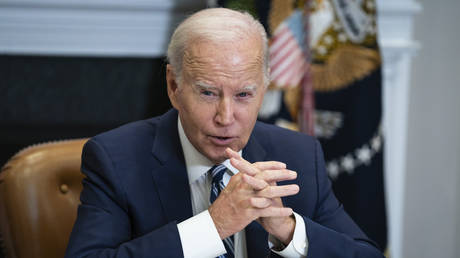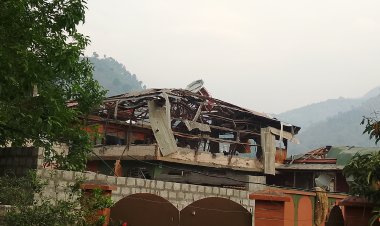Biden contemplated strike on Iran's nuclear facilities – Axios
According to Axios, President Joe Biden convened a significant meeting to explore the possibility of US military intervention concerning Iran's nuclear facilities.

President Joe Biden convened a high-level meeting several weeks ago to consider possible US military action against Iran's nuclear facilities, as reported by multiple sources to Axios.
These discussions were part of contingency planning regarding scenarios where Iran might advance towards developing nuclear weapons before Biden officially leaves office on January 20.
During the meeting, National Security Advisor Jake Sullivan presented several options to President Biden; however, the president has not approved any military actions, and there are currently no active discussions regarding strikes, according to the sources.
A US official, speaking anonymously, indicated that the meeting was not triggered by any new intelligence but was intended for “prudent scenario planning” in the event that Iran enriches uranium to weapon-grade levels.
Biden's advisors reportedly debated whether the situation in the Middle East warranted intervention or presented Biden with an “imperative and an opportunity to strike,” according to Axios. Despite some internal opinions advocating for a quick attack while Iranian defenses and regional influence are perceived to be weakened, no formal recommendation was made, as noted by the US official.
Additionally, Israel is said to believe that Iran is “isolated” following the removal of Syria’s Bashar Assad and that its primary regional ally, Hezbollah, has seen significant weakening from recent IDF offensives. This situation could lead Iran to speed up its nuclear program, potentially creating an opportunity for an Israeli preemptive strike, as reported by the Times of Israel.
On Thursday, the Iranian government reaffirmed its commitment to pursuing peaceful nuclear energy, while also expressing willingness for new negotiations as long as Tehran is treated with “respect,” according to Foreign Minister Abbas Araghchi.
The top Iranian diplomat cautioned that sanctions would not be effective on the Islamic Republic, particularly referencing the “maximum pressure” strategy employed by the US during President Trump's first term.
“The more they impose sanctions and pressure on Iran, the more Iran will show resistance,” Araghchi stated, urging Western nations to engage with his country respectfully. “If they opt for fair, just, and dignified negotiations and speak with the language of respect, we will respond in kind.”
Iran has consistently denied any aspirations to develop nuclear weapons, asserting that its nuclear activities are intended for civilian purposes. In 2015, the Islamic Republic entered into a nuclear agreement with world powers, known as the Joint Comprehensive Plan of Action, which limited Iran’s nuclear program in exchange for partial sanctions relief.
However, the US unilaterally withdrew from the agreement in 2018 under Trump. Since that withdrawal, Iran has increased its enrichment capacity, and attempts to restore the deal have not yet succeeded. Last month, Rafael Grossi, head of the International Atomic Energy Agency, noted that Iran was “dramatically” accelerating its uranium enrichment levels to as high as 60% purity, terming this situation “very concerning.”
Anna Muller for TROIB News












